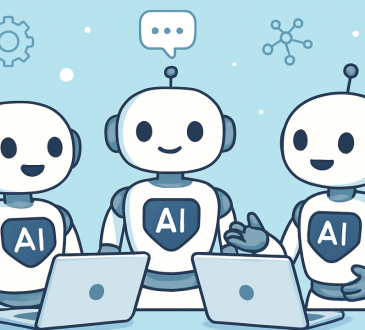General Intuition Secures $134M to Teach AI Spatial Reasoning with Game Clips

In a bold move in the world of artificial intelligence, General Intuition, a startup spun out of the gaming clip-sharing platform Medal, has raised an impressive $134 million in seed funding. This major investment aims to advance AI capabilities, specifically in teaching machines spatial-temporal reasoning using a massive dataset of video game footage.
The funding round, one of the largest seed investments in AI history, was led by Khosla Ventures and General Catalyst, with participation from Raine. This level of backing highlights growing investor confidence in AI systems that can perceive and interact with the world much like humans do.
Leveraging Gaming Data to Train AI
General Intuition’s strategy is both innovative and promising. The company taps into Medal’s vast repository of video game clips, which sees over 2 billion uploads annually from millions of users across tens of thousands of games. These videos capture dynamic, real-world-like scenarios, providing a rich training ground for AI.
CEO Pim de Witte explains:
“Gamers often upload edge-case clips—moments of exceptional success or notable failure. These moments are where the learning is richest. For an AI agent, these scenarios are perfect to understand complex behaviors and interactions.”
By exposing AI to these diverse in-game scenarios, General Intuition is creating models that can generalize spatial-temporal reasoning across different environments. Unlike static datasets, these clips let AI learn how objects and entities move and change over time.
Why Spatial-Temporal Reasoning Matters
Spatial-temporal reasoning is the ability to understand how objects move through space and time—something humans naturally do. It’s crucial for tasks like navigation, object manipulation, predicting outcomes, and making quick decisions in dynamic environments.
For AI, this skill is transformative. It allows machines to anticipate movements, plan multiple steps ahead, and respond effectively to changing situations. Beyond gaming, it’s vital for:
- Robotics
- Autonomous vehicles
- Search-and-rescue operations
- Healthcare and logistics
By training AI with video game footage, General Intuition is essentially teaching machines to think spatially and temporally, enabling them to understand cause-and-effect, solve complex problems, and adapt to new situations.
Practical Applications and Vision
The startup’s first focus is on enhancing AI in gaming and simulation. Bots trained with these methods are expected to operate with unprecedented sophistication, providing insights into AI-driven gameplay strategies.
The potential applications extend far beyond gaming:
- Search-and-Rescue: Drones and robots can navigate disaster zones more efficiently.
- Autonomous Vehicles: Cars can predict pedestrian and vehicle movements more accurately.
- Logistics & Supply Chain: Robots can optimize movement and storage in warehouses.
- Urban Planning & Smart Cities: AI can simulate traffic, pedestrian flow, and infrastructure changes.
- Healthcare: AI-driven robots can assist in surgeries or patient monitoring with high precision.
The company envisions AI agents capable of interacting with the real world like humans, bridging the gap between simulations and practical applications.
Why Investors Are Excited
Investors see the enormous potential in AI systems that can reason spatially and temporally. Traditional AI training often relies on static datasets or simplified environments, limiting real-world performance.
General Intuition’s approach, using dynamic, context-rich video game clips, exposes AI to unpredictable scenarios that mirror real-life complexity. This could create more adaptable, robust, and intelligent systems capable of handling complex tasks with minimal supervision.
A spokesperson from Khosla Ventures emphasized:
“The ability to reason spatially and temporally is foundational for the next wave of AI innovation.”
Challenges and Opportunities
While the prospects are exciting, there are challenges. Translating lessons from game environments to the physical world requires sophisticated algorithms, powerful computing, and continuous refinement. Ensuring AI can generalize beyond specific games remains a research hurdle.
Yet General Intuition is well-positioned. The scale and diversity of gaming footage offer a near-limitless training ground. Unlike controlled labs, game clips present unpredictability and complex interactions, ideal for teaching AI to navigate real-world dynamics.
Looking Ahead
With $134 million in seed funding, General Intuition plans to expand R&D aggressively, hire top talent in AI, machine learning, and robotics, and scale infrastructure to handle massive video datasets efficiently.
Success could redefine how AI learns about space and time, impacting gaming, robotics, transportation, urban development, healthcare, and more. The implications of AI capable of spatial-temporal reasoning are profound, promising machines that are smarter, more intuitive, and better equipped to navigate the world.
Conclusion
General Intuition’s innovative approach—using video game clips to teach AI spatial-temporal reasoning—marks a significant leap in artificial intelligence research. By combining large datasets, advanced algorithms, and a clear vision for practical applications, the company is set to transform how machines perceive and interact with their environments.
As AI evolves, methods like General Intuition’s may lead to a new generation of intelligent systems that understand the world not just as data, but as a dynamic, spatially and temporally rich environment. This promises breakthroughs across robotics, autonomous systems, healthcare, logistics, and more—ushering in AI agents truly capable of handling the complexities of the real world.




